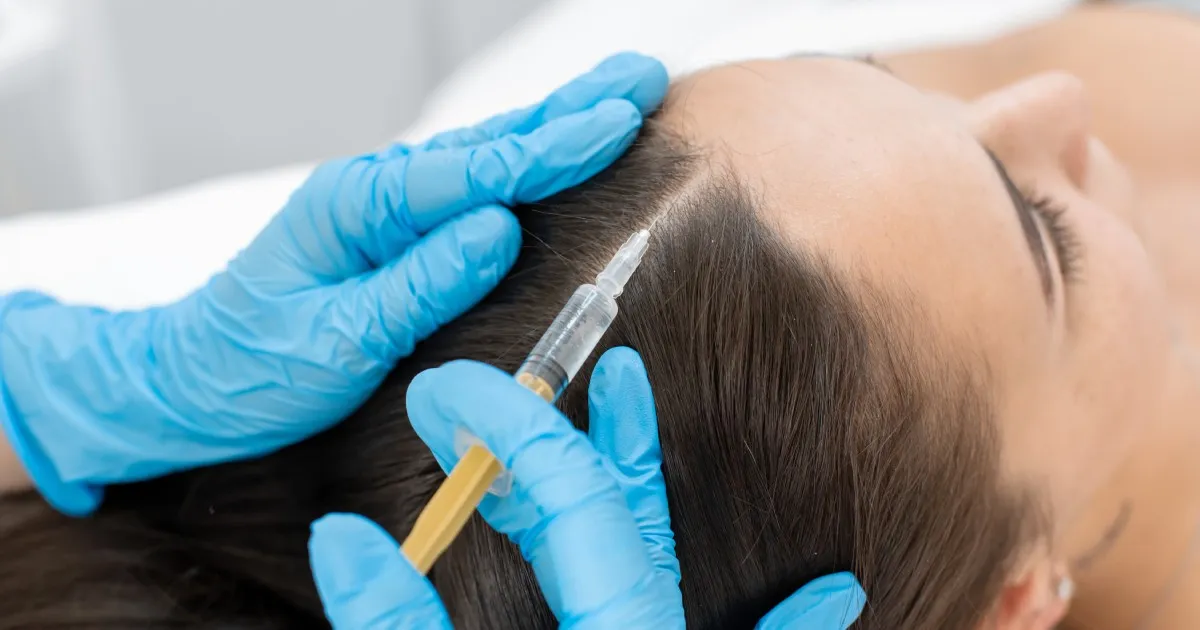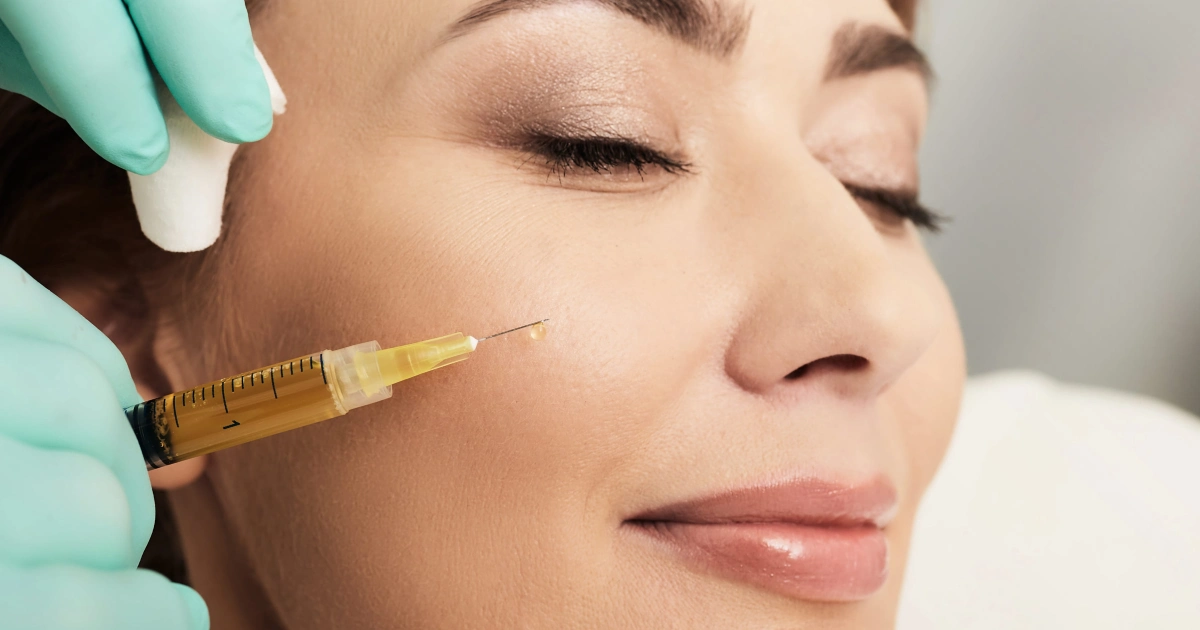Table of Contents
What Is Ketamine Therapy & How Does It Help Mood Disorders?
For decades, mental health treatments have largely focused on antidepressants and psychotherapy. While these methods work for many, countless patients continue to struggle with persistent depression, anxiety, and other mood disorders that don’t respond to traditional care.
The mentioned gap has led to a growing interest in ketamine therapy, an innovative treatment offering new hope to those with treatment-resistant depression and anxiety.
Originally developed as an anesthetic, ketamine has gained recognition in recent years for its rapid and profound effects on mood regulation. Clinical studies and patient experiences alike have highlighted the benefits of ketamine therapy, particularly for patients who’ve spent years searching for relief.
Could this treatment be the breakthrough you’ve been waiting for?
At Rejuvenate Medical Spa in Olympia, Washington, patients are experiencing remarkable results through ketamine for mental health. They are able to rediscover that sought-after balance and emotional well-being when other treatments have failed.
Understanding Mood Disorders
Common Mood Disorders Treated by Ketamine
Mood disorders impact millions of people worldwide, altering how they think, feel, and function daily. For many, the journey toward healing involves trial and error with multiple medications before finding relief.
Fortunately, ketamine therapy offers a faster, more effective solution for several types of mood disorders, including:
- Major Depressive Disorder (MDD): One of the most common and debilitating mental health conditions, MDD often resists traditional antidepressant therapy. Ketamine for depression can rapidly lift mood and restore motivation within hours or days.
- Bipolar Depression: For patients with bipolar disorder, finding the right treatment balance is critical. Ketamine helps regulate mood swings and alleviate depressive symptoms without the destabilizing effects often seen with other medications.
- Post-Traumatic Stress Disorder (PTSD): By reducing the emotional intensity of traumatic memories, ketamine allows individuals to process trauma with greater clarity and less distress.
- Anxiety Disorders: For many who wonder, does ketamine help with anxiety? The answer is yes. Ketamine works by calming overactive brain regions associated with fear and worry, providing relief for those living with generalized anxiety, panic disorder, and social anxiety.
- Suicidal Ideation: One of the most profound uses of ketamine is its ability to reduce suicidal thoughts quickly (sometimes within hours), providing immediate stabilization and life-saving support.
How Ketamine Therapy Works
The Science Behind Ketamine for Mental Health
To understand how ketamine works for mood disorders, it’s helpful to look at its unique effects on brain chemistry. Conventional antidepressants primarily influence serotonin levels. On the other hand, ketamine acts on the NMDA receptors in the brain, affecting glutamate. The latter is a neurotransmitter that plays a crucial role in mood regulation and neural communication.
This process enhances neuroplasticity, allowing the brain to form new, healthy neural pathways that support positive thought patterns and emotional resilience. Essentially, ketamine helps the brain “rewire” itself, reversing the damage caused by chronic stress and depression.
Moreover, ketamine’s rapid-acting antidepressant effects set it apart from traditional SSRIs, which can take weeks to months to show improvement. Many patients experience noticeable mood elevation and mental clarity within just one or two sessions.
Benefits of Ketamine Therapy
Why Choose Ketamine for Mood Disorders?
The benefits of ketamine therapy extend far beyond quick symptom relief. It addresses both the biological and emotional roots of depression, anxiety, and other mood disorders. Patients at Rejuvenate Medical Spa have experienced:
- Fast Relief: Noticeable improvement within hours or days rather than weeks.
- Effectiveness in Treatment-Resistant Cases: Offers hope for individuals who haven’t responded to multiple medications or therapies.
- Reduction of Suicidal Thoughts: Provides rapid stabilization during mental health crises.
- Minimal Long-Term Side Effects: When administered under medical supervision, ketamine is considered safe and well-tolerated.
By targeting the brain’s chemistry and enhancing its ability to heal, ketamine for mental health empowers patients to regain control over their emotional well-being.
The Ketamine Treatment Process
What to Expect During Ketamine Therapy
At Rejuvenate Medical Spa in Olympia, Washington, each patient’s journey through the ketamine therapy process is carefully personalized for safety, comfort, and maximum benefit. Here’s what you can expect:
Consultation & Eligibility Screening:
The first step involves a detailed assessment of your medical and mental health history. This evaluation ensures ketamine is appropriate for your condition and helps customize your treatment plan.
Administration Methods:
Ketamine can be delivered via IV infusion, nasal spray, or oral lozenge, depending on your individual needs and response.
Session Duration & Frequency:
A typical session lasts 40-60 minutes, followed by a brief recovery period. Most patients begin with a series of 6–8 treatments over several weeks to achieve optimal results.
Post-Treatment Integration:
To maximize benefits, Rejuvenate encourages integration sessions that include talk therapy or mindfulness practices to process the emotional breakthroughs often experienced after ketamine treatments.
This structured, holistic approach ensures that every patient receives not only relief from symptoms but also long-term strategies for maintaining mental balance.
Success Rates & Research
The clinical evidence supporting ketamine’s impact on mental health continues to grow. Multiple studies demonstrate that up to 70% of patients with treatment-resistant depression show significant symptom reduction after completing a course of ketamine therapy.
Research published in the American Journal of Psychiatry found that ketamine produced rapid and substantial improvements in depressive symptoms within just 24 hours. Another major advancement came when the FDA approved esketamine (Spravato)—a nasal spray derived from ketamine—for the treatment of resistant depression.
These findings validate what countless patients have already experienced firsthand: ketamine for mental health works when traditional methods fall short.
Ketamine vs. Traditional Treatments
How Ketamine Compares to Antidepressants & Therapy
When comparing ketamine to conventional antidepressants or psychotherapy, the differences are striking:
- Speed of Relief: Ketamine acts within hours, while SSRIs may take several weeks to show measurable effects.
- Efficacy in Resistant Cases: Many individuals who do not respond to standard medications report success with ketamine.
- Side Effects: Common antidepressant side effects like weight gain, emotional dullness, or sexual dysfunction are rarely reported with ketamine, which is typically well-tolerated.
In combination with therapy, ketamine offers a dual-action approach—repairing brain chemistry while supporting emotional healing.
Safety & Side Effects
Is Ketamine Therapy Safe?
Safety is a key concern for anyone considering this treatment. Fortunately, when administered by medical professionals, ketamine therapy has a strong safety profile.
Short-term side effects may include mild dissociation, dizziness, or nausea during or shortly after the session. These effects usually fade within an hour.
Long-term safety data indicate that ketamine is not addictive when used under supervision, and patients can undergo maintenance treatments safely over time. However, individuals with uncontrolled hypertension, active psychosis, or certain cardiovascular conditions should avoid ketamine unless cleared by a physician.
At Rejuvenate Medical Spa, every session is conducted under close medical monitoring, ensuring a secure and supportive environment from start to finish.
Frequently Asked Questions
How long do ketamine effects last?
The mood-enhancing effects can last from several days to weeks. Regular maintenance sessions help sustain results over time.
Is ketamine therapy addictive?
When administered in a clinical setting, ketamine is not addictive. Recreational misuse differs significantly from controlled therapeutic use.
Will insurance cover ketamine treatment?
Coverage varies depending on your provider and the form of ketamine administered. Some plans may cover esketamine (Spravato), but not IV infusions.
How many sessions are needed?
Most patients benefit from an initial series of six treatments, followed by maintenance sessions as needed to prevent relapse.
Is Ketamine Therapy Right for You?
The Benefits of ketamine therapy are redefining what’s possible in mental health care. Whether you’re battling chronic depression, anxiety, or PTSD, this innovative treatment offers a scientifically proven way to restore balance and clarity—often when nothing else has worked.
At Rejuvenate Medical Spa in Olympia, Washington, our dedicated professionals are committed to helping you heal through evidence-based, compassionate care. With advanced expertise in ketamine for mental health, we provide a safe, nurturing environment where transformation begins.
Take control of your mental health today. Contact Rejuvenate Medical Spa in Olympia, WA, to schedule your consultation.



